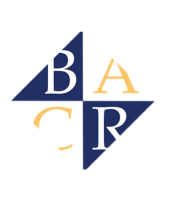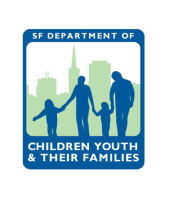Books are all about journeys. Whether they be metaphorical, spiritual, physical, or emotional, the main point of a book is to follow what a person, place, or thing has gone through to become what they are or were. However, not everyone has the time or the desire to read books! And although I don’t really get why anyone wouldn’t want to read, I think it is important for everyone to understand the basics of the classics so that they can talk about them in polite society. With that in mind, here is a master-list of important books with short, easy to understand summaries.
NOTE: THIS POST WILL CONTAIN SPOILERS OF THE BOOKS, READ AT YOUR OWN RISK!

Fahrenheit 451by Ray Bradbury (1953)
A guy, Guy, is a firefighter, but in his time (the future) firefighters burn books instead of putting out fires because books are outlawed. Guy meets a teenage girl who changes his perspective in life and teaches him to smell the roses rather than being blinded by the media. When she disappears (and is later found dead), he realizes what society has become, steals books to read, and begins to realize his wife is suicidal. Eventually, Guy’s wife tells the firefighter chief about his collection, he leaves her because he has fallen out of love with her and cannot trust her anymore, and joins a group of philosophical homeless people who want to change the world.
Frankenstein by Mary Shelley (1818)
A university man named Frankenstein (no, he is not the monster) realizes he can use newfangled scientific technologies to create life. He makes a grotesque humanoid creature (“The Creature”, often mistakenly called Frankenstein) using what is assumed to be chemical engineering. Frankenstein is disgusted by “The Creature” and falls into a depression. Then, “The Creature” runs away and tries to find a family, but realizes he is too cruel-faced to be loved. In turn, he begs Frankenstein for a partner, but Frankenstein says he would never create another monster. Then “The Creature” kills off everyone Frankenstein loved. The Creature leaves and travels all over the world, eventually landing in the arctic. Frankenstein follows him, but is unable to exact revenge, is rescued by a ship, and dies dies due to exposure. Once he is dead, The Creature leaves, promising to commit suicide.
The Adventures of Tom Sawyer by Mark Twain (1876)
This kid (keep in mind throughout all this that we’re talking somewhere between 11-14 years old), Tom Sawyer, is raised in an 1800s middle-class family on the Mississippi River. He meets loads of people, and his life in this book is basically a rollercoaster of excitement and activities. He paints his aunt’s fence and then somehow manipulates other children into paying him in apples and other objects to paint the fence for him. Then, he goes to school, finds a girl he likes and essentially proposes to her, until she finds out he was previously was engaged to another girl. He then witnesses the murder of another man when he is in a graveyard at night to do young children shenanigans. Later, Tom and a friend, Huckleberry Finn, run away to an island in the Mississippi River, until they tire of their games and go back home just in time to visit their own funeral and bring home the good news to their families that they are actually not dead (and Tom is very proud to have attended his own funeral and to have seen all the suffering in his honor). Later, he and Huckleberry Finn go on an adventure to find treasure in a “haunted house” which causes them to learn more about the graveyard murderer, whose name is Injun Joe. Injun Joe is found dead in a cave, and Huckleberry Finn is adopted by the a widow who was attacked by Injun Joe. This book is all one story, but it describes several large events throughout it.
The Bible (Author Unknown)
The Bible is one of the most iconic and highly referenced books in the world. And, whether or not you believe the ideas in it, or agree with its philosophies, you don’t want to get caught not knowing the really basic ideas of this big book. I’m not going to summarize the entire thing, because there are more than 1,000 pages in it, but I’ll summarize the ideas that are most commonly referenced. The first, thing you need to know is that Jesus was a Jew. Secondly, this guy named Noah took a bunch of animals onto a boat because God said he was going to cleanse the planet by flooding it (this story is known as Noah’s Ark). Then there’s Moses, who led the Jews out of Egypt to reclaim their country (Israel) because God told him to, and then he parted the Red Sea to escape the Egyptian soldiers on their trail. Another highly referenced story is that of Abraham and his son. Basically, God told Abraham to sacrifice his only (and last) son to show true devotion to the Lord. Then, when Abraham thinks he has to give up his only child, God provides a lamb to be sacrificed instead of the son, proving his merciful kindness. Another important story is that of Adam and Eve: Adam was made by God, God uses one of Adam’s ribs to make him a companion, Eve, and they are happy until Eve is encouraged by a snake to eat an apple from this special tree that God specifically said never to eat from, after she takes a bite of the apple, Adam and Eve lose their innocence, become more intelligent and aware of themselves, and are considered the children of sin because they did not listen to God. One last thing: the Bible describes the creation of the world, which took six days.
The Diary of a Young Girl by Anne Frank (1947)
Honestly, this is one of the best and most emotional narratives I have ever read. The Diary of a Young Girl was the journal of Anne Frank, a young girl who lived as a Jew during World War II and spent her time during the war hiding in the attic of a building, which is known famously throughout the story as “The Secret Annex.” Anne Frank lives and hides out in The Annex there with her family and two other families. Throughout her time there, Anne experiences boredom, romance, fear, anger, and depression. I believe that this story is one of the most expressive books I have ever read because it so accurately portrays the mindset of a young girl, who despite living in constant danger during World War II, continues to spend most of her time thinking about things other than her endless prison in The Annex.
All of the books listed above are incredibly famous and are constantly referenced. I loved reading all of these (well, except The Bible, that was definitely not one of my favorites, but it is very important). If you do decide you want to read one of these, I would recommend Fahrenheit 451 because it is a very easy read, and it forces you to truly think about what will happen to humankind without education, and its lessons apply to many of the societal problems that exist today.





